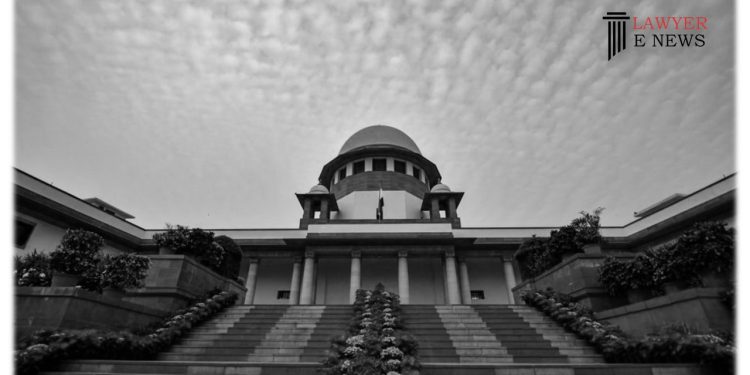-
by Admin
16 February 2026 1:47 PM



In a significant ruling, the Supreme Court of India has clarified that evidence can be adduced to support the ground of public policy in an application filed under Section 34 of the Arbitration & Conciliation Act, 1996. The court emphasized that such proceedings are summary in nature and aimed at expeditious resolution of disputes. The judgment, delivered by a bench comprising Justice M.R. Shah and Justice C.T. Ravikumar, addressed the question of whether evidence can be permitted to establish the ground of public policy in Section 34 applications.
The court noted that the requirement of "furnishing proof" in Section 34(2)(a) had undergone a substantial change after the amendment, replacing it with the phrase "establishes on the basis of the record of the arbitral tribunal." However, the court clarified that this amendment applied only to arbitration proceedings and awards that commenced after the amendment came into effect. For cases prior to the amendment, the pre-amendment provision shall be applicable.
Referring to previous decisions, the court emphasized the special nature of Section 34 applications, aiming to minimize court interference and ensure prompt resolution of arbitral disputes. The court held that issues need not be framed in such applications, but evidence is necessary to establish the grounds mentioned in Section 34(2)(a) and (b). The burden of proof lies with the applicant, who must plead and prove the existence of the grounds for setting aside the award.
The court further clarified that affidavits can be filed as evidence in Section 34 proceedings, and cross-examination should be allowed only if absolutely necessary. The focus is on the evidence presented by both parties, and issues need not be framed as in regular civil suits. The court also acknowledged that, in exceptional cases, where matters not contained in the arbitrator's record are relevant, parties can be permitted to file affidavits/additional evidence.
In the present case, the respondents sought to file affidavits presenting a communication from the appropriate authority that refused permission for the amalgamation of plots. As the refusal occurred after the arbitral award, the court found it to be a subsequent development relevant to the grounds under Section 34(2)(b) concerning the settlement capability of the dispute and the public policy of India. However, the appellant was granted the opportunity to cross-examine and produce contrary evidence.
The court emphasized that the ground of the arbitral award being in conflict with public policy can be raised before execution proceedings, and parties need not wait until execution to challenge the award on this ground. The objective of speedy dispute resolution under the Arbitration Act supports addressing the issue at the Section 34 stage.
The Supreme Court concluded that the High Court had not erred in allowing the respondents to file affidavits/additional evidence in the Section 34 proceedings. It directed the court dealing with the application to decide and dispose of it expeditiously, taking into account the evidence presented and the objective of speedy resolution.
Date of Decision: January 19, 2023
M/s Alpine Housing Development Corporation Pvt. Ltd VS Ashok S. Dhariwal and Others
